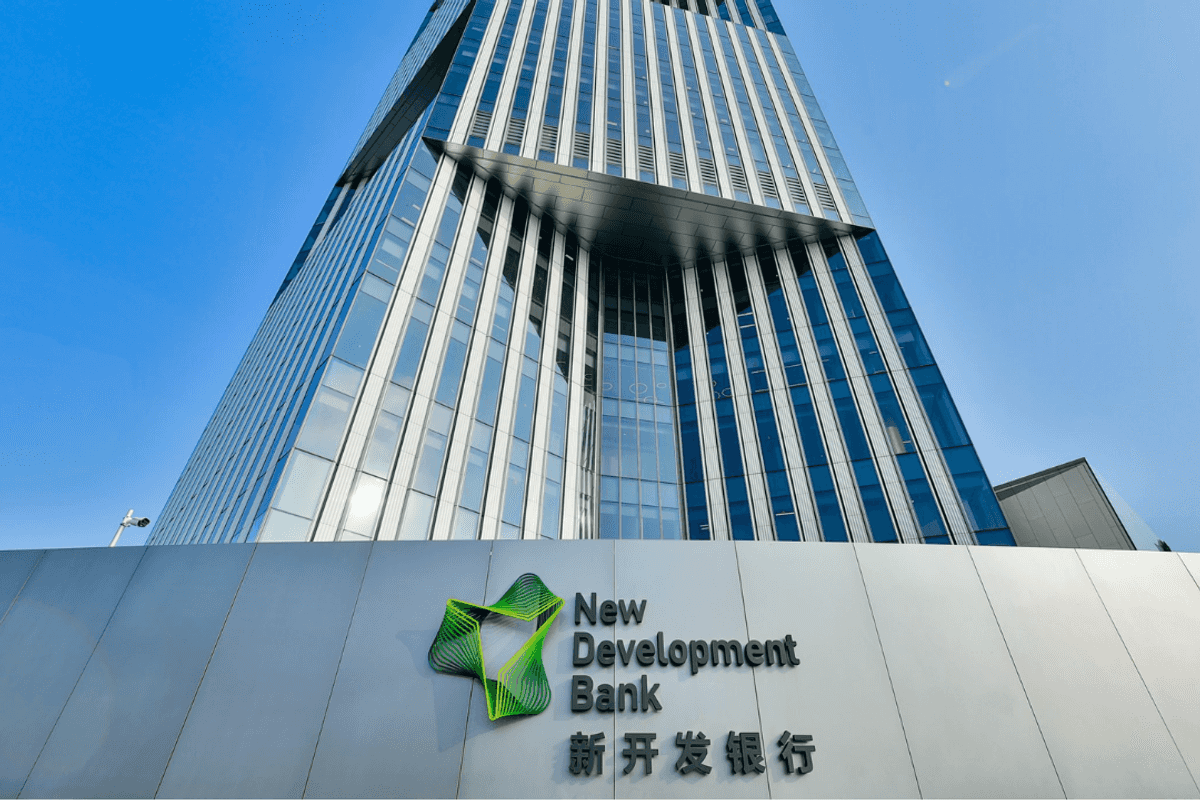Pakistan seeks China’s support for joining BRICS-backed bank
The New Development Bank finances infrastructure and development projects in emerging economies
Business Desk
The Business Desk tracks economic trends, market movements, and business developments, offering analysis of both local and global financial news.

The Shanghai-based NDB was founded in 2015 by Brazil, Russia, India, China, and South Africa.
New Development Bank
Pakistan has formally sought China’s support to join the BRICS-backed New Development Bank (NDB), in a move aimed at broadening its access to development financing and reducing dependence on Western-led lenders, Nikkei Asia reported on Friday.
The request was made by Finance Minister Muhammad Aurangzeb during a meeting with China’s Deputy Finance Minister Liao Min on the sidelines of the International Monetary Fund (IMF) and World Bank annual meetings in Washington last week, according to Pakistan’s Ministry of Finance.
“Pakistan has already applied for NDB membership earlier this year, which is under process,” a government official told Nikkei Asia.
The Shanghai-based NDB — founded in 2015 by Brazil, Russia, India, China, and South Africa — finances infrastructure and development projects in emerging economies. Each founding member holds an equal stake of about 18.76%. Newer members include Egypt, Bangladesh, Algeria, and the United Arab Emirates.
While Beijing is expected to back Islamabad’s membership bid, India, one of the bank’s founding members, is likely to oppose Pakistan’s inclusion, according to the report.
Analysts say China’s support for Pakistan’s entry would align with its strategy of multilateralizing development finance as part of a shift away from direct bilateral lending under the Belt and Road Initiative (BRI).
“Given that Pakistan is one of China’s closest allies, Beijing may want Islamabad to jump on the NDB bandwagon,” Nikkei Asia quoted Bradley Parks, executive director of AidData at William & Mary University in Virginia, as saying.
Parks added that Beijing has been “outsourcing risk management to state-owned commercial banks with stronger loan repayment safeguards,” noting that multilateral lenders like the NDB provide a platform for shared risk exposure.
Since 2015, China has invested around $25.4 billion in the China-Pakistan Economic Corridor (CPEC) — a flagship BRI project — but progress has been hampered by delayed payments to Chinese firms, governance hurdles, and security incidents that have claimed the lives of at least 21 Chinese nationals since 2021.
Ikram ul Haq, a Lahore-based legal and tax expert, told Nikkei Asia he expects Beijing to “strongly support Pakistan’s inclusion” in the NDB as part of its long-term commitment to the Pakistan-China economic partnership.
Expanding trade ties with China and Russia
China remains Pakistan’s largest trading partner, with annual bilateral trade exceeding $25 billion, driven by energy, machinery, and infrastructure investments under CPEC.
Pakistan’s exports to China have also grown under the second phase of the Pakistan-China Free Trade Agreement, which allows duty-free access for hundreds of products.
Meanwhile, Pakistan’s trade with Russia has expanded sharply since 2023, following Islamabad’s decision to import discounted crude oil from Moscow under a rupee-based payment mechanism. The move marked a shift in Pakistan’s energy diversification strategy amid global sanctions on Russia.
Analysts say Pakistan’s outreach to the NDB — where both China and Russia hold major stakes — reflects Islamabad’s push to deepen financial and economic ties with non-Western blocs amid persistent funding constraints and a fragile external account.
If accepted, Pakistan would become the fifth Asian member of the NDB and the first new entrant since 2023, signaling a further strengthening of its alignment with the China-led development and financial architecture.







Comments
See what people are discussing